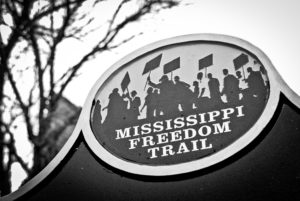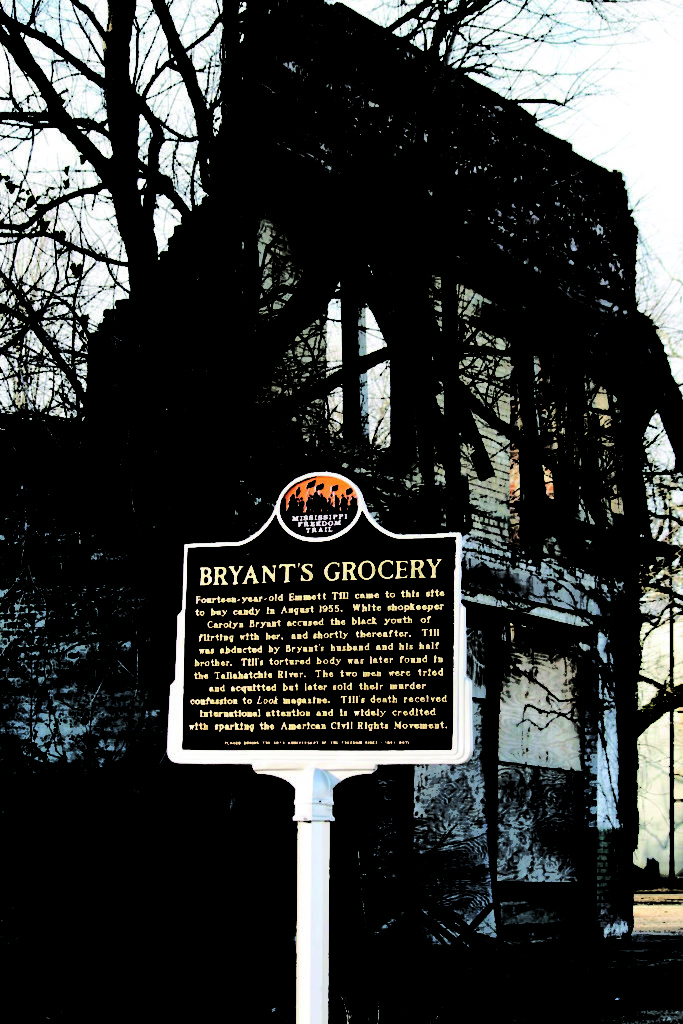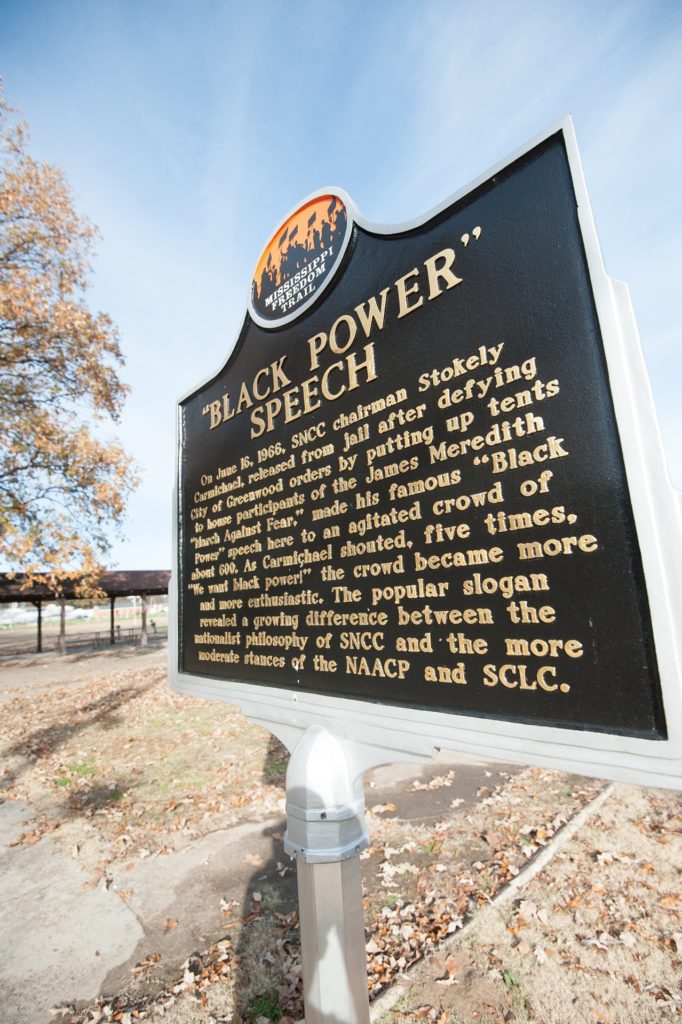
In the middle of the 20th century, Greenwood and Leflore County witnessed a slow but certain shift in the winds of justice, a gathering spirit of hope, promise and determination that what had been accepted for so long would no longer be accepted. Those with deep roots in the Delta joined their voices with those from far away and vowed that they would not be turned away. Their steps can be traced, even today, along the streets in and around Greenwood.
Greenwood is known as the epicenter for the Civil Rights Movement. From appearances of Martin Luther King Jr. to the housing of the Student Non-Violent Coordinating Committee offices, Greenwood has played a major role in the progression of civil rights in the United States. These historical events are still marked today in the streets of Greenwood, highlighted by two Freedom Trail Markers that you can visit on your next trip here.
Bryant’s Grocery (Emmett Till)
The Mississippi Freedom Trail Marker is located in Money, about nine miles north of Greenwood. Fourteen-year-old Emmett Till came to this site to buy candy in August 1955. White shopkeeper Carolyn Bryant accused the black youth of flirting with her, and shortly thereafter, Till was abducted by Bryant’s husband and half-brother. Till’s tortured body was later found in the Tallahatchie River. The two men were tried and acquitted, but later sold their murder confession to Look magazine. Till’s death received international attention and is widely credited with sparking the American Civil Rights Movement.
“Black Power Speech”
This Mississippi Freedom Trail Marker located at Broad Street Park in Greenwood. On June 16, 1966, Student Nonviolent Coordinating Committee (SNCC) chairman Stokely Carmichael, released from jail after defying City of Greenwood orders by putting up tents to house participants of the James Meredith “March Against Fear,” made his famous “Black Power” speech here to an agitated crowd of about 600. As Carmichael shouted, “We want black power!” the crowd became more and more enthusiastic. The popular slogan revealed a growing difference between the nationalist philosophy of SNCC and the more moderate stances of the NAACP and SCLC.
These are not the only two events in the rich history of Greenwood. Click here to download the full brochure, packed with walking maps and historical information from the many events centered around Civil Rights.





